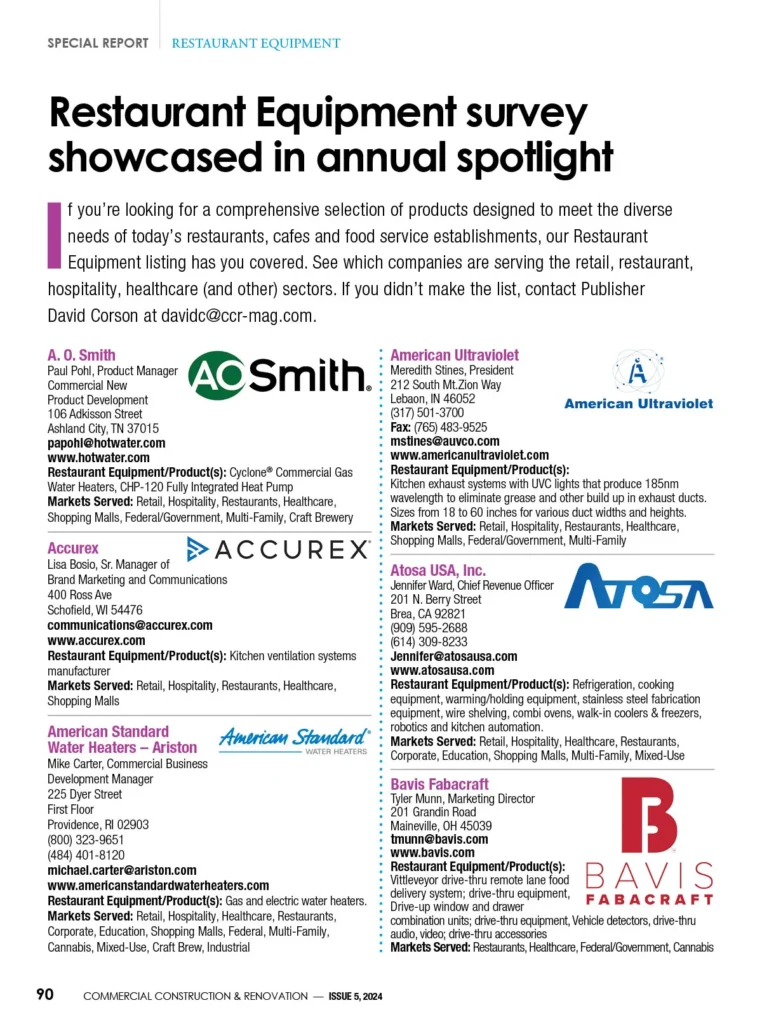Choosing the right water heater is crucial for maintaining your home’s comfort and efficiency. As a leading provider of HVAC services, IRBIS HVAC understands the importance of having a reliable and efficient water heater to meet your household’s needs. With various available options, it can be challenging to determine which type of water heater is best suited for your home.
This article will explain the different types of water heaters and the key considerations to consider when selecting. By understanding your options and evaluating your specific requirements, you can ensure that your home remains comfortable and energy-efficient year-round with the help of IRBIS HVAC.
Types of Water Heaters
Choosing the best water heater depends on understanding the various types available and their specific advantages and disadvantages. Here, we explore the most common types of water heaters to help you make an informed decision.
Storage Tank Water Heaters
Storage tank water heaters are the most common type. As the name suggests, these consist of an insulated tank where water is heated and stored until needed, then emerges from a pipe on top of the water heater. Key features include an insulated tank to retain heat and a temperature and pressure relief valve for safety. Natural gas models typically use less energy and cost less to run than electric models. However, they may have a higher initial purchase cost. While these heaters are less energy-efficient due to heat loss from stored water, they are simple to use and maintain, with a relatively low initial cost. Regular maintenance, such as flushing to remove sediment buildup, is necessary to ensure efficient operation and extend the unit’s lifespan. Additionally, storage tank water heaters are available in various sizes to suit household needs, typically 20 to 80 gallons.
Tankless (On-Demand) Water Heaters
Tankless water heaters use heating coils to heat water as needed without storing it. These units are more energy-efficient than storage tanks because they only heat water on demand, providing an endless hot water supply as long as the demand doesn’t exceed the capacity. They are compact, can be mounted on walls, save space, and have a lifespan of up to 20 years or more with proper maintenance. However, they have a limited flow rate—usually about 3.5 gallons per minute, depending on the inlet water temperature—which can be a limitation if multiple hot water demands occur simultaneously, such as running a shower and dishwasher simultaneously. They may require an expensive electrical capacity upgrade for electric models, while gas models are more suitable for homes that already use gas. The initial cost is higher than storage tank water heaters, but the long-term energy savings can offset this investment.
Heat Pump (Hybrid) Water Heaters
Heat pump water heaters capture heat from the air and transfer it to the water, using about 60 percent less energy than standard electric water heaters. They work by extracting heat from the surrounding air and transferring it to the water, functioning similarly to a refrigerator but in reverse. These heaters are best installed in areas between 40°F and 90°F, requiring up to 1,000 cubic feet of uncooled space and a nearby drain for condensate discharge. Although they have a higher upfront cost, the long-term savings and short payback period make them an attractive option for energy-conscious homeowners. They require significant space and height clearance, typically needing as much as 7 feet from floor to ceiling. Heat pump water heaters also offer additional benefits, such as dehumidifying the space where they are installed, which can be advantageous in humid climates.
Each type of water heater offers unique benefits and drawbacks. Understanding these can help you choose the best water heater for your home, ensuring a reliable and efficient hot water supply.
Critical Considerations for Choosing a Water Heater
Choosing the right water heater for your home involves more than just selecting a type. Several factors must be considered to ensure you make an informed decision that meets your household’s needs efficiently and economically. Here are key considerations to guide you in choosing the best water heater.
Fuel Type
The type of fuel available in your home will influence your water heater choice. Common fuel types include electricity, natural gas, and propane. Natural gas water heaters are often more cost-effective than electric models but may require gas line installation. Electric water heaters are easier to install and maintain but can have higher operating costs. Heat pump water heaters offer significant energy savings but may have specific installation requirements and higher upfront costs.
Size and Capacity
The size and capacity of the water heater should match your household’s hot water needs. A unit that is too small will struggle to meet demand, while one that is too large will waste energy. Consider the tank’s capacity for storage tank water heaters, which typically ranges from 20 to 80 gallons. Check tankless water heaters’ flow rate (gallons per minute) to ensure they can handle peak hot water usage. Heat pump water heaters also come in various sizes to accommodate household needs.
Energy Efficiency
Energy efficiency is a crucial factor in selecting a water heater. More efficient units can significantly reduce your utility bills and environmental impact. Look for water heaters with high energy factor (EF) ratings or Energy Star certification. Tankless and heat pump water heaters are typically more energy-efficient than traditional storage tank models. Consider the long-term savings on energy costs when evaluating the initial investment in an energy-efficient model.
Installation and Maintenance
Proper installation is critical for your water heater’s optimal performance and safety. Some units, like tankless and heat pump water heaters, may require professional installation due to their complexity and specific requirements. Ensure you have enough space for installation, especially for units needing ample clearance, such as heat pump water heaters. Regular maintenance is essential for prolonging the lifespan and efficiency of your water heater. This includes flushing the tank to remove sediment buildup, inspecting and replacing anode rods, and checking the temperature and pressure relief valve.
Cost
Evaluate the upfront and long-term operating costs of different water heaters. While more energy-efficient models may have a higher initial cost, they can lead to substantial savings on your energy bills over time. Compare the initial purchase price, installation costs, and expected energy savings. Also, consider the potential for rebates or incentives for heat pump water heaters, which can help offset the initial investment.
Environmental Impact
Consider the environmental impact of your water heater choice. Energy-efficient models, such as heat pump water heaters, reduce greenhouse gas emissions and reliance on fossil fuels. If environmental sustainability is a priority, opt for models that offer the best energy efficiency and utilize renewable energy sources.
Space Requirements
Ensure you have adequate space for the installation of your chosen water heater. Tankless and condensing water heaters are compact and can be mounted on walls, saving floor space. Heat pump water heaters require significant clearance and ventilation space, typically up to 7 feet from floor to ceiling and 1,000 cubic feet of uncooled space. Storage tank water heaters also vary in size and need sufficient space for installation and maintenance.
Recovery Rate
The recovery rate indicates how quickly a water heater can heat a new water supply after depleting the initial supply. This is especially important for households with high hot water demand. Tankless water heaters provide continuous hot water but have a limited flow rate. Storage tank water heaters have varying recovery rates depending on their size and fuel type. Ensure the recovery rate meets your household’s peak hot water needs.
Warranty and Lifespan
Consider the warranty and expected lifespan of the water heater. More extended warranties often indicate better quality and durability. Tankless water heaters typically last longer than storage tank models, with lifespans of up to 20 years or more. Heat pump water heaters also have longer lifespans but may require specific maintenance to achieve their full potential.
By carefully considering these factors, you can select a water heater that meets your household’s needs, operates efficiently, and fits within your budget. For professional advice and installation services, trust IRBIS HVAC to help you choose the best water heater for your home.
Conclusion
Choosing the right water heater for your home involves carefully considering various factors, including fuel type, size and capacity, energy efficiency, installation and maintenance requirements, cost, and environmental impact. Each type of water heater—whether a storage tank, tankless, or heat pump —offers unique advantages and drawbacks that should be weighed according to your specific needs and circumstances.
By understanding these fundamental considerations, you can make an informed decision that ensures a reliable and efficient hot water supply for your household. An appropriate choice enhances your comfort and contributes to energy savings and reduced utility bills.
At IRBIS HVAC, we are committed to helping you find the perfect water heater for your home. Our team of experts is ready to provide professional advice, top-quality products, and reliable installation services. Contact IRBIS HVAC today to learn more about our water heating solutions and ensure your home remains comfortable and energy-efficient year-round. Visit our website or contact our customer service team for more information and to schedule a consultation.






 The 2024 virtual Men’s Round Table will be held Q4, 2024, date TBD.
The 2024 virtual Men’s Round Table will be held Q4, 2024, date TBD.












